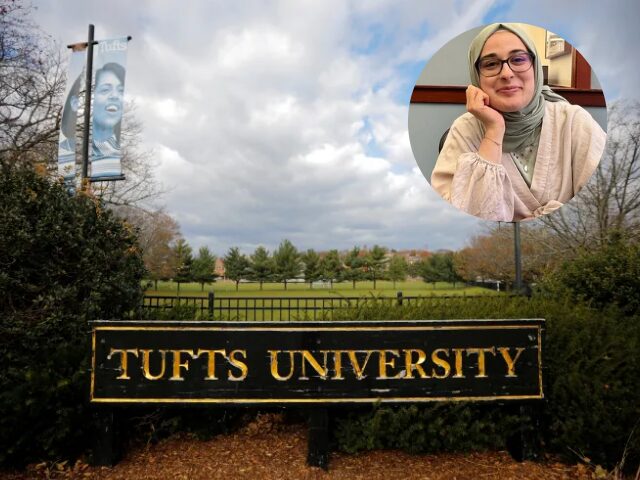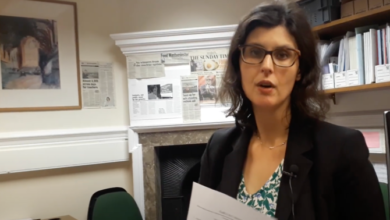A Turkish doctoral student at Tufts University in Massachusetts, Rumeysa Ozturk, was arrested by US immigration authorities for supporting Palestinians during the ongoing war in Gaza.
The incident has raised serious concerns about free speech and civil liberties in the United States, particularly regarding international students involved in political activism.
Ozturk, who resides in Somerville, Massachusetts, was arrested by Department of Homeland Security agents on Tuesday evening after she left her home to meet friends for Ramadan.
Her lawyer, Mahsa Khanbabai, filed a petition in federal court, arguing that Ozturk’s detention was unlawful and directly tied to her support for Palestine. Khanbabai also sought a court order to prevent Ozturk from being moved out of Massachusetts without prior notice.
The Turkish student’s detention follows her involvement in activism critical of Israeli policies.
A year ago, Ozturk co-authored an opinion piece in the Tufts Daily, the university’s student paper, that criticized Tufts’ response to student calls to divest from companies with ties to Israel. She also called for the university to “acknowledge the Palestinian genocide,” further highlighting her pro-Palestinian stance.
Ozturk’s arrest is part of a broader pattern of immigration enforcement under President Donald Trump’s administration, which has sought to detain foreign-born students involved in pro-Palestinian protests.
Her case is being seen as the first known immigration arrest of a Boston-area student related to pro-Palestinian activism. Critics argue that this marks a dangerous precedent for silencing free speech, particularly among international students.
Following her arrest, Khanbabai filed a lawsuit against US Immigration and Customs Enforcement (ICE) on Tuesday, arguing that Ozturk’s detention violated her rights. US District Judge Indira Talwani issued an order preventing ICE from moving Ozturk out of Massachusetts without at least 48 hours’ notice.
However, by Wednesday afternoon, Khanbabai was unable to locate her client and learned from a US senator’s office that Ozturk had been transferred to Louisiana. The lawyer then filed another motion seeking access to Ozturk.
The arrest has sparked outrage among civil rights groups and lawmakers, particularly those within the Democratic Party. US Senator Elizabeth Warren of Massachusetts condemned the detention, describing it as part of an “alarming pattern to stifle civil liberties.”
Supporters of Ozturk have also expressed their concerns, noting that the arrest appeared to play out in a dramatic and unsettling manner, with one neighbour describing it as looking “like a kidnapping.”
The incident is the latest in a series of actions by the Trump administration targeting international students, especially those involved in protests or political activities. The administration has been increasingly focused on limiting the rights of foreign-born students, with some of its actions deemed to be discriminatory or an attempt to curb political dissent.
Ozturk’s arrest comes less than three weeks after Mahmoud Khalil, a Columbia University graduate and US permanent resident, was similarly detained. Khalil was also accused by the Trump administration of supporting Hamas, a charge he denies.
Other students, including those at Columbia and Georgetown Universities, have also been targeted for participating in pro-Palestinian protests.
The incident involving Ozturk has also caught the attention of Tufts University. The institution’s president, Sunil Kumar, confirmed that the school had no prior knowledge of the arrest, which he acknowledged would be distressing to members of the university community, particularly its international students.
Ozturk, a Fulbright Scholar and doctoral student in the field of child study and human development, has been living in the US on an F-1 visa, which allows foreign students to remain in the country while studying. Her case raises significant concerns about the intersection of immigration policy, free speech, and the rights of international students in the US.







